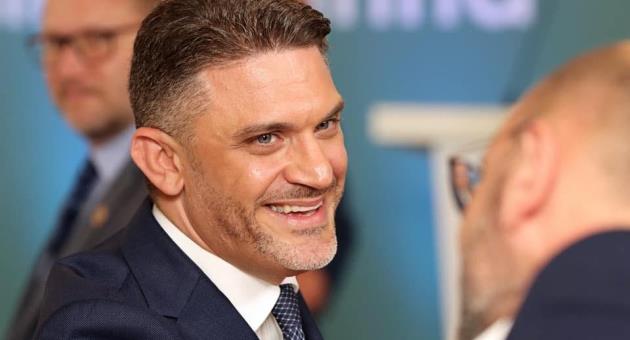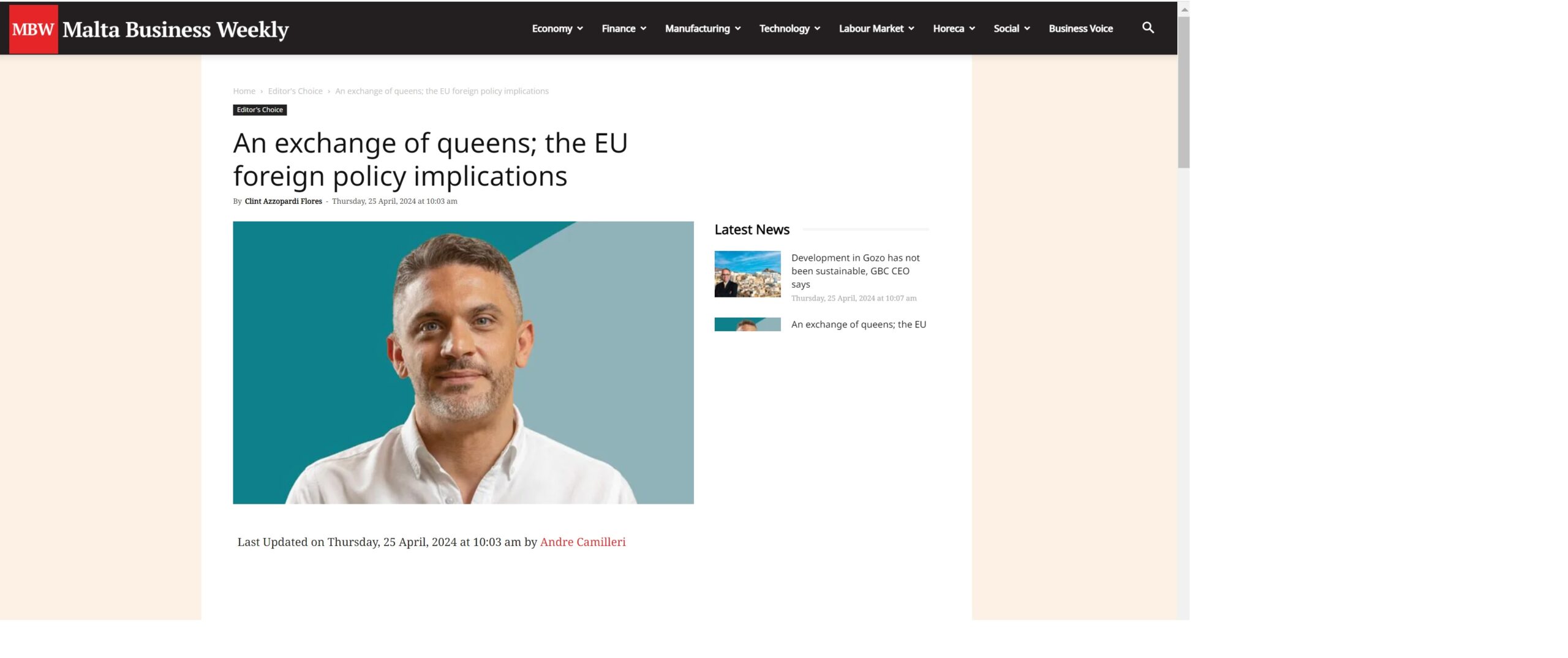Almost a fortnight ago we assisted for the first summit of the newly established informal platform of the European Political Community. The meeting was convened at Heads of State and Government level in Prague, also in view that the Czech Republic is currently presiding the Council of the EU. The idea of establishing a European Political Community was touted by French President Emmanuel Macron back in May 2022. The format of the informal platform is primarily to foster additional cooperation in areas of interest between the countries involved. There are forty-four countries participating in the newly established European Political Community, including the twenty-seven Member States, the UK, Turkey, and Azerbaijan to name a few. Present for the meeting were also the President of the European Commission and the President of the European Council.
The proposal of setting up an informal high political platform is a positive step. If the EU manages to foster additional cooperation between the countries in Europe and Central Asia, it is certainly a victory for diplomatic engagement. Frankly, I believe that such a high-level political platform is needed to engage with political leaders. Importantly, the set up provides an engagement that fosters economic and political dialogue between the participating countries. Clearly, this is what we call diplomacy. The diplomatic credibility of the EU can bring countries together and enhance different diplomatic tracks to foster security and stability in Europe. Also, it is an opportunity to nurture relationships at a higher political level relative to the side summits that are normally organised during the year. In fact, a deployment of a monitoring mission along the Armenian side of the international border with Azerbaijan, was agreed to be set-up to primarily promote and restore peace and security in the South Caucasus.
Separately, exactly one day after the high-level meeting in Prague, the bridge that connects Russia with Crimea was hit by an explosion. The bridge was damaged by a massive blast that obliterated a large part of it, leaving the railway bridge above and the crossing inaccessible to commuters. Obviously, Russia blamed Ukraine for the attack. However, Kyiv never confirmed that it was behind the attack. Sadly, the incident left at least three people dead. Online commentators came in droves to describe the explosion as a birthday gift for President Vladimir Putin. Given the current context every word can be interpreted in different ways. Even the tone must be controlled, especially when trained diplomats are engaging with other peers in multilateral institutions. At least this is the training a diplomat receives before a posting.
In retaliation Russia intensified its airstrikes, with media reporting that more than roughly eighty missiles were launched, and several Iranian kamikaze drones deployed and hitting civilian areas across Ukraine especially the capital city of Kyiv. However, the scale of military that was used for such aerial attacks does not allow a country at war to deploy resources in a matter of days in retaliation of what happened to the bridge. The magnitude of miliary resources used indicates that weeks and perhaps months were needed to carry out such a counteroffensive. In fact, the EU issued a statement condemning the shelling of civilian areas and appealed to Russia to stop using the explosion of the bridge as a pretext to bomb civilian zones.
Following these events, the Council of Europe issued a resolution to condemn the Russian air strikes against towns and cities in Ukraine. Meanwhile, the United Nations General Assembly voted on a separate resolution to condemn Russia’s attempts to annex four regions of Ukraine. The resolution saw an overwhelming support with one hundred forty-three countries voting in favour, five countries against, and thirty-five states abstained amongst them India and China. After the General Assembly’s vote, the Permanent Representative of Ukraine to the UN used a binocular to mock the result, by trying to spot those countries that voted against the resolution along with Russia. Obviously, such an act is not the norm in diplomacy. Normally, trained diplomats are resilient enough to resist such temptations and the behaviour in multilateral institutions is mature enough not to descend to sarcastic levels.
Furthermore, during the same week, the sixth regional summit of the conference of interaction on confidence building measures in Asia was convened in Astana. Some parts of the media states that it was just a few handshakes with President Putin in response of Russia’s diplomatic isolation. However, it was reported that on the side lines of the summit, Turkish President Erdogan met with President Putin to push the idea of creating a regional gas hub in Turkey. The proposed pipeline would supply additional natural gas to southern Europe via the Turkish route. Obviously, after the near total disruption of Russian supplies via the Nord Stream project the Russian President stated that Turkey is clearly more secure that Europe. Cynical than this we cannot get considering that Turkey is exploiting the current situation to position itself as a security provider. Also, let’s recall that in 2019, Turkey signed a Memorandum of Understanding with Libya – specifically Tripoli to extract hydrocarbons – which agreement touches upon the EEZ of an EU member states.
Furthermore, Foreign Minister met last Monday in Luxembourg to discuss inter alia the situation in Ukraine, as well as the EU relations with China. On the former Ministers agreed to establish a European Military Assistance Mission to train and support Ukrainian forces. The Assistance Mission will be deployed on European Union soil and its purpose is to train around fifteen thousand troops. Additionally, another tranche from the European Peace Facility amounting to half a billion was allocated and agreed to finance deliveries to the Ukrainian Defence Forces. The Minister of the Foreign Affairs of Ukraine joined via videoconference and addressed the Foreign Affairs Council from a bomb shelter.
Undoubtedly, we had several occurrences that warranted special attention, with the Ukrainian war dominating the media. Clearly, the EU will keep on supporting Ukraine, both militarily, as well as financially. Nonetheless, the war in Ukraine is sending shockwaves around the globe, including high inflation, higher interest rates to curb price increases, shortages of energy supplies, as well as the risk of mass hunger due to astronomical food prices and scarcities. We still need to see how long it will take until European citizens take the streets to protest about the high cost of living and the constant disruptions in electricity supplies. Unquestionably, the EU must step in and expediate the process to help EU citizens, if they want to keep on supporting Ukraine. And lastly, it is not in the EU’s interest to allow the economic situation to degenerate to a point of having mass protests, as that would certainly work in favour of the aggressor to continue indefinitely with its hostility.



